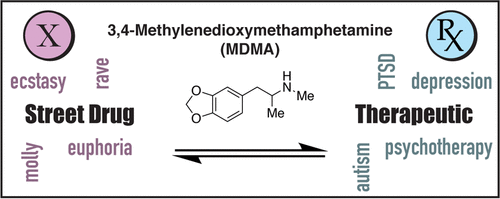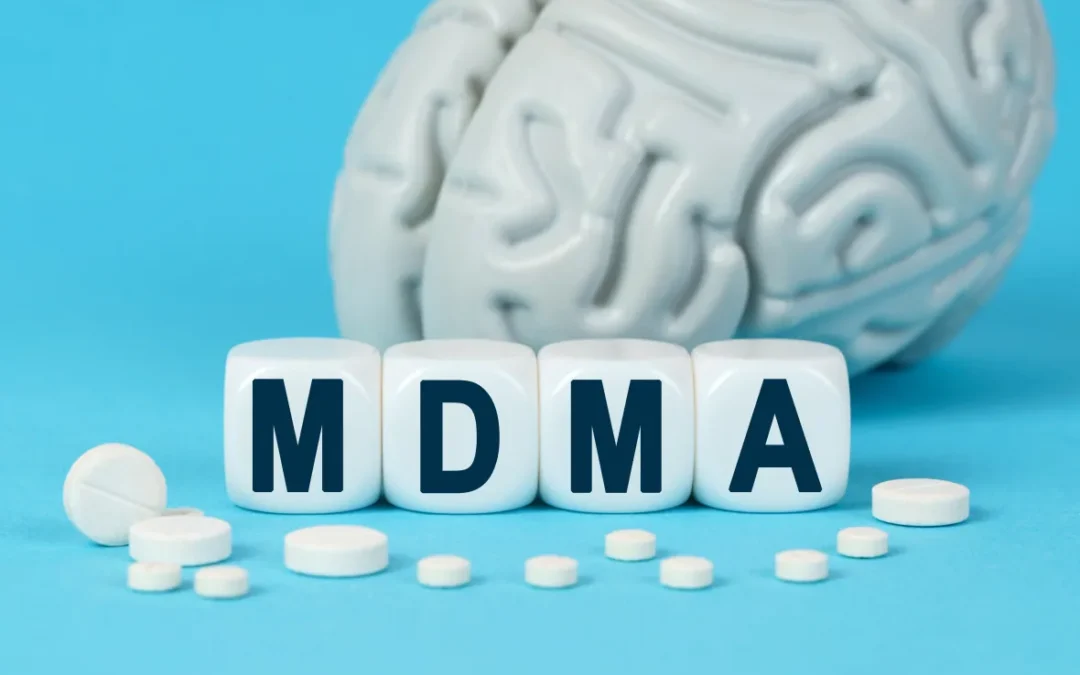MDMA (3,4-methylenedioxymethamphetamine) is a psychoactive drug that has been used recreationally for decades. However, recent research has shown promising results in using MDMA-assisted psychotherapy to treat post-traumatic stress disorder (PTSD).
PTSD is a mental health disorder that can occur after a person experiences or witnesses a traumatic event. It is characterized by symptoms such as intrusive thoughts, avoidance behaviors, hypervigilance, and nightmares. Traditional treatments for PTSD include talk therapy, medication, and exposure therapy.
MDMA-assisted psychotherapy involves taking MDMA in a controlled and supervised setting with the guidance of a trained therapist. The drug is believed to help with PTSD by reducing fear and anxiety, enhancing feelings of empathy and connection with others, and promoting introspection and emotional processing.
Clinical trials have shown that MDMA-assisted psychotherapy can be effective in treating PTSD. In fact, in 2021, the U.S. Food and Drug Administration (FDA) granted Breakthrough Therapy Designation to MDMA-assisted psychotherapy for the treatment of PTSD. This designation is given to therapies that show significant promise in treating serious or life-threatening conditions.
It is important to note that MDMA is a Schedule I drug in the United States, meaning it is considered to have a high potential for abuse and no accepted medical use. However, the FDA has recognized the potential therapeutic benefits of MDMA-assisted psychotherapy and is working to make it available for clinical use in the treatment of PTSD.

History
MDMA (3,4-methylenedioxymethamphetamine) was first synthesized by the German pharmaceutical company Merck in 1912. At the time, it was not widely used or studied.
In the 1970s, MDMA gained popularity as a recreational drug, particularly among psychotherapists and others interested in its potential therapeutic benefits. Many believed that MDMA could enhance empathy, communication, and emotional openness, making it a useful tool for psychotherapy.
In the late 1970s and early 1980s, a number of therapists and researchers began using MDMA in their work with patients. Some reported positive results, including improvements in mood, self-awareness, and relationship dynamics.
However, as the popularity of MDMA grew, so did concerns about its potential risks and abuse. In 1985, the U.S. Drug Enforcement Administration (DEA) classified MDMA as a Schedule I drug, meaning it was deemed to have a high potential for abuse and no accepted medical use.
The decision to criminalize MDMA was controversial, and many researchers and therapists argued that it would limit their ability to study and use the drug in a therapeutic context. Nevertheless, MDMA became illegal in many countries, and research on its potential therapeutic uses was severely restricted for many years.
In recent years, however, attitudes toward MDMA have begun to shift. As research has demonstrated the drug’s potential benefits in treating conditions such as PTSD, some organizations have advocated for its legalization for therapeutic use. In some countries, including the United States, MDMA-assisted psychotherapy is now being studied and could potentially be approved for clinical use in the future.
The War on Drugs
Rick Doblin is the founder and executive director of the Multidisciplinary Association for Psychedelic Studies (MAPS), a nonprofit organization that advocates for the use of psychedelics in medical research and therapy. He has been a vocal critic of the war on drugs and has argued that the criminalization of MDMA and other psychedelics has hindered research and prevented patients from accessing potentially effective treatments.
Doblin has argued that the criminalization of MDMA and other psychedelics is based on fear and misinformation, rather than scientific evidence. He has criticized the drug enforcement policies of the US government, arguing that they have focused too heavily on punishment and incarceration rather than on harm reduction and public health.
Doblin has also highlighted the potential therapeutic benefits of MDMA, particularly in the treatment of PTSD. He has argued that MDMA-assisted psychotherapy has the potential to significantly improve the lives of patients with PTSD who have not responded to traditional treatments.
Overall, Doblin has been a prominent advocate for the legalization of MDMA and other psychedelics for medical research and therapy. He believes that criminalizing these substances is counterproductive and prevents patients from accessing potentially life-changing treatments.

